The Tragedy of Dehumanization
In Gaza and Israel, the degradation of universality has enabled atrocities.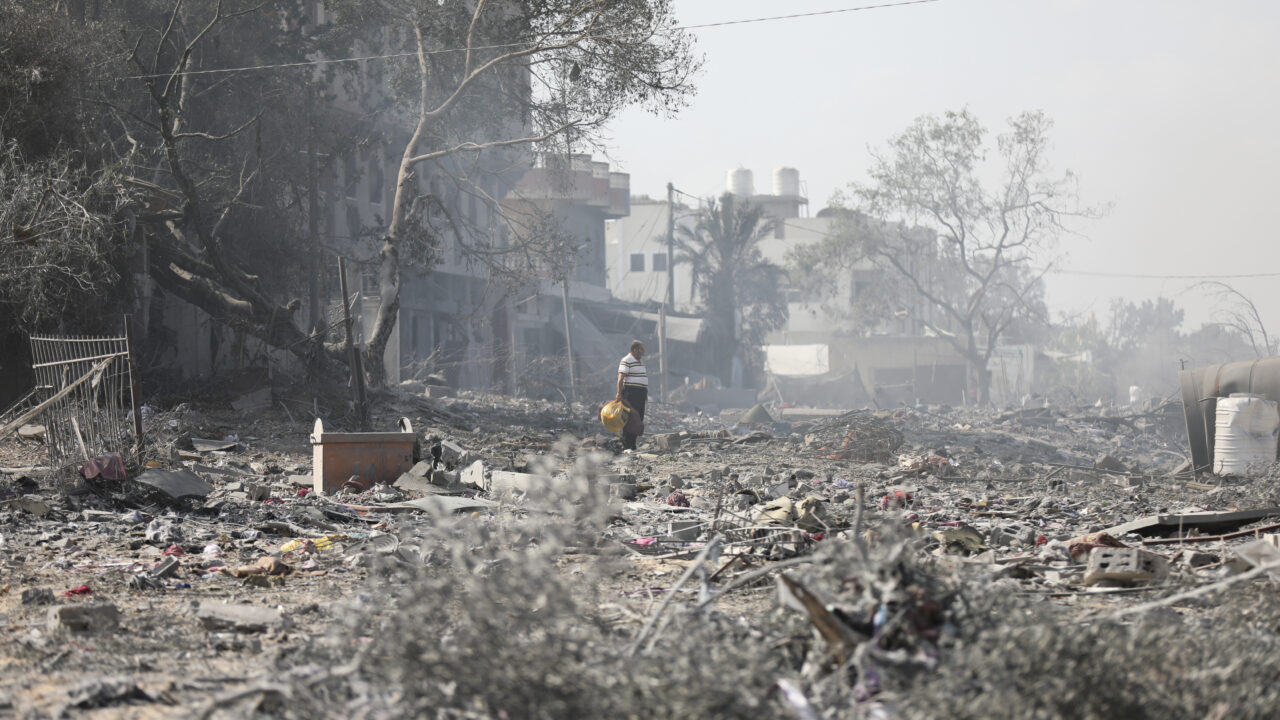 Palestinians walk by the buildings destroyed in the Israeli bombardment on al-Zahra, on the outskirts of Gaza City, Friday, Oct. 20, 2023. (AP Photo/Ali Mahmoud)
Palestinians walk by the buildings destroyed in the Israeli bombardment on al-Zahra, on the outskirts of Gaza City, Friday, Oct. 20, 2023. (AP Photo/Ali Mahmoud)
In a video-taped lecture posted online last year by the international nonprofit organization Facing History and Ourselves, Holocaust scholar James Edward Waller relates a chilling anecdote about Franz Stangl, the Nazi commandant who ran the Treblinka extermination camp from September 1942 to August 1943.
At one point during his tenure, Stangl was asked by a group of condemned Jews, “Why did you beat us? Why did you strip us? Why did you spit on us? Why did you call us names? Because the only reason we were at Treblinka was to be put to death. You knew you were going to kill us, why put us through all the humiliation, all the dehumanization?”
Stangl replied, “Because it made it easier for my men to do what they had to do. The less human you were in their eyes, the easier it was for them to perpetrate the atrocities.”
Dehumanization has been a cornerstone of warfare and ethnic and religious conflict from time immemorial. The same malignancy is now spreading on both sides of the bloodletting in Gaza and Israel.
Founded in 1987 after the start of the First Intifada, Hamas has long promoted hatred of Jews. Its founding covenant, published in 1988, declared an uncompromising holy war to reclaim Palestine, and states: “The Day of Judgment will not come about until Moslems fight Jews and kill them. Then, the Jews will hide behind rocks and trees, and the rocks and trees will cry out: ‘O Moslem, there is a Jew hiding behind me, come and kill him.’”
The war has dealt a crippling blow to the principle of universality — the idea that all human beings possess equal dignity and worth.
In 2017, Hamas issued a revised charter, proclaiming that it was at war only with Zionism and not the Jewish people. However, the surprise attack of Oct. 7, in which Hamas fighters massacred over 1,400 Israelis, mostly civilians, and took some 200 hostages into Gaza, including an estimated 30 children and 20 people over the age of 60, graphically demonstrates the contrary. The organization is still committed to the destruction of Israel, and called for a worldwide “day of rage” to take place on Oct. 13, exhorting Muslims to harm Israelis and Jews.
The current right-wing government of Israel led by Prime Minister Bibi Netanyahu employs a comparable rhetoric of cruelty.
October 9 Israeli Defense Minister Yoav Gallant ordered a “total siege” of Gaza. “There will be no electricity, no food, and no fuel, everything will be closed,” Gallant said. “We are fighting against human animals and will act accordingly.”
“It’s an entire nation out there that is responsible [for the slaughter],” Israel’s president, Isaac Herzog, added in a speech rebroadcast on X (formerly Twitter) on October 13 to justify his government’s relentless retaliatory bombing campaign and blockade of Gaza.
In an interview with The Guardian, Ariel Kallner, a member of the Israeli parliament for Benjamin Netanyahu’s Likud party, was even more explicit, calling for a second “Nakba,” referring to the mass expulsion of Palestinians after the 1948 war with Israel. “Right now, one goal: Nakba! A Nakba that will overshadow the Nakba of 1948,” Kallner said.
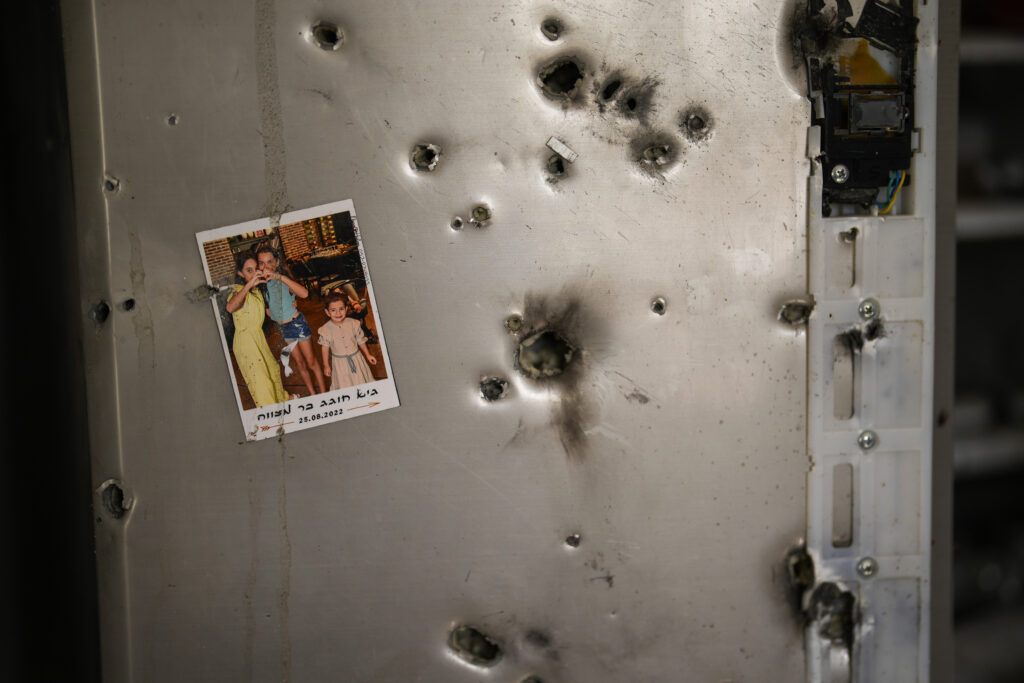
As of this writing, Israeli airstrikes have killed over 5000 Gazans, and injured more than 15,273. The dead number at least 1,756 children and 976 women, according to the Palestinian health ministry. A staggering 1.4 million Gazans reportedly have been internally displaced from their homes. Thus far, Israel has resisted growing international calls for a cease-fire.
Tragically, it’s not just the bodies of the dead that keep piling up on both sides. The war has also dealt a crippling blow to the principle of universality — the idea that all human beings possess equal dignity and worth.
The ideal of universality is the animating principle behind the Universal Declaration of Human Rights (UDHR). Adopted by the General Assembly of the United Nations in 1948 in the aftermath of the unspeakable horrors of World War II, the UDHR is divided into 30 articles, or subsections, outlining the rights of all people everywhere. These span the human-rights spectrum, encompassing the right to be free from torture and to seek asylum, along with the rights to freedom of expression, education, economic security, health care, housing, privacy, movement and equality before the law.
The atrocities can be expected to continue, day-by-day, hour-by-hour, driven by the impulse to dehumanize the enemy as the world watches in revulsion and anguish.
Although the UDHR is only an aspirational document, it has influenced the design and content of more than 80 international human rights treaties and declarations, such as the 1966 International Covenant on Civil and Political Rights; the 1976 International Covenant on Economic, Social and Cultural Rights of 1976; the 1984 Convention Against Torture; and the 1989 Convention on the Rights of the Child.
The UDHR also inspired the drafting of the Rome Statute of 1998 that led to the formation of the International Criminal Court (ICC) in 2002.
Unlike the older and better-known International Court of Justice, which is the principal judicial organ of the U.N. and hears disputes between nations, the ICC is a treaty-based institution that is legally independent of the U.N., and hears cases brought against individuals accused of war crimes, genocide and other “crimes against humanity.” Such offenses are meticulously defined by the Rome Statute, and include the deliberate killing of members of a racial, national, ethnic or religious group; murder of civilians; apartheid; torture; and the taking of hostages.
To date, 123 nations are parties to the Rome Statute, acceding to the ICC’s jurisdiction. Palestine, under the auspices of the Palestine Authority, not Hamas, joined the court in 2015. Israel, however, has steadfastly declined to ratify the Rome Statute and refuses to recognize the court’s authority, fearing that its leaders could face prosecution.
Despite Israel’s defiance (and that of the United States, which also has declined to ratify the Rome Statute), the Rome statute extends the ICC’s jurisdiction to crimes committed anywhere by citizens of its member states as well as crimes committed by anyone within the territory of a member state. As the ICC’s chief prosecutor told Reuters on Oct. 12, this means that the court has jurisdiction over potential war crimes committed by both Hamas militants in Israel and Israelis in Gaza.
In 2019, the ICC opened an investigation into alleged war crimes committed in Gaza and the West Bank, and, in 2021, the judges of the court determined there was jurisdiction to proceed with the case. The investigation will now expand and hopefully accelerate.
In the meantime, the atrocities can be expected to continue, day-by-day, hour-by-hour, driven by the impulse to dehumanize the enemy as the world watches in revulsion and anguish.
Your support matters…Independent journalism is under threat and overshadowed by heavily funded mainstream media.
You can help level the playing field. Become a member.
Your tax-deductible contribution keeps us digging beneath the headlines to give you thought-provoking, investigative reporting and analysis that unearths what's really happening- without compromise.
Give today to support our courageous, independent journalists.

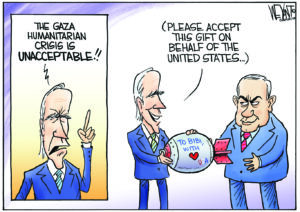
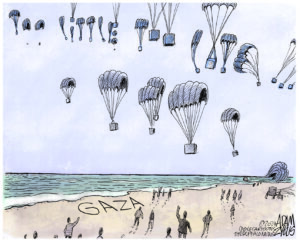


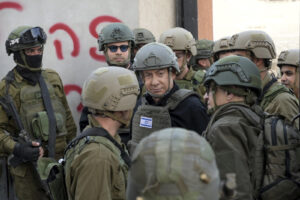
A big step in stopping dehumanization is to break free of the "revealed" religions. Judaism, Christianity and Islam all look at nonbelievers as ungodly. Judaism and Islam actually call for religious violence to promote Judaism and Islam, while Christianity implies religious violence.
We need to evolve out of these ancient harmful "revealed" religions. The best way to do that is to take the advice of the Deist Thomas Paine who wrote in The Age...
A big step in stopping dehumanization is to break free of the "revealed" religions. Judaism, Christianity and Islam all look at nonbelievers as ungodly. Judaism and Islam actually call for religious violence to promote Judaism and Islam, while Christianity implies religious violence.
We need to evolve out of these ancient harmful "revealed" religions. The best way to do that is to take the advice of the Deist Thomas Paine who wrote in The Age of Reason that we need a revolution in religion based on our innate reason and Deism (belief in God based on reason and nature).
A big step in stopping dehumanization is to break free of the "revealed" religions. Judaism, Christianity and Islam all look at nonbelievers as ungodly. Judaism and Islam actually call for religious violence to promote Judaism and Islam, while Christianity implies religious violence.
We need to evolve out of these ancient harmful "revealed" religions. The best way to do that is to take the advice of the Deist Thomas Paine who wrote in The Age...
A big step in stopping dehumanization is to break free of the "revealed" religions. Judaism, Christianity and Islam all look at nonbelievers as ungodly. Judaism and Islam actually call for religious violence to promote Judaism and Islam, while Christianity implies religious violence.
We need to evolve out of these ancient harmful "revealed" religions. The best way to do that is to take the advice of the Deist Thomas Paine who wrote in The Age of Reason ( https://www.deism.com/post/the-age-of-reason ) that we need a revolution in religion based on our innate reason and Deism (belief in God based on reason and nature).